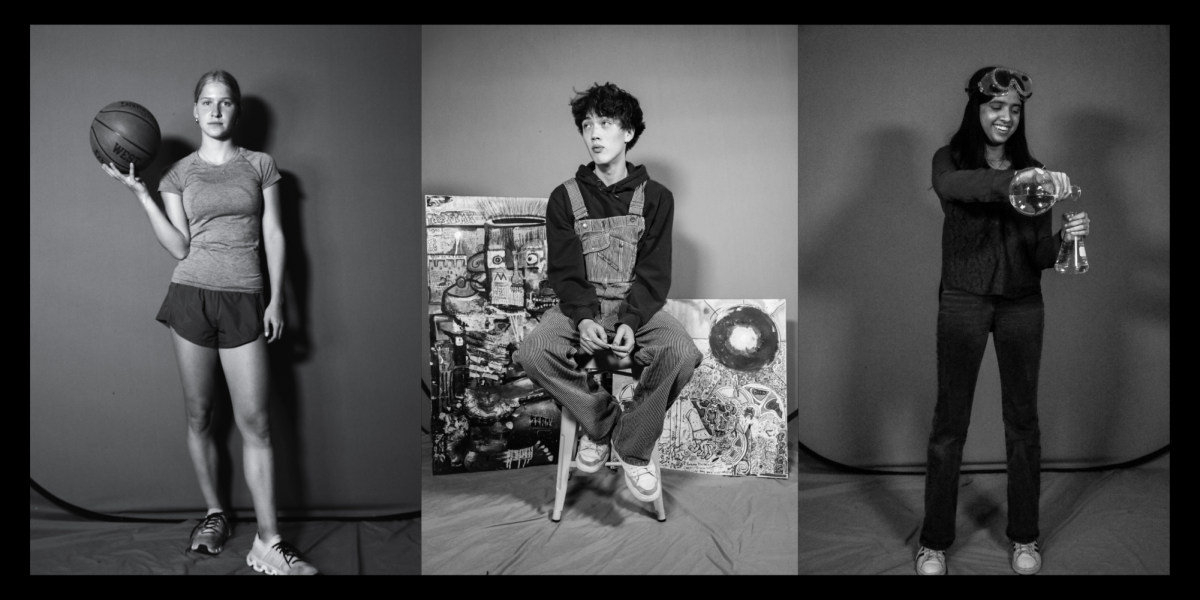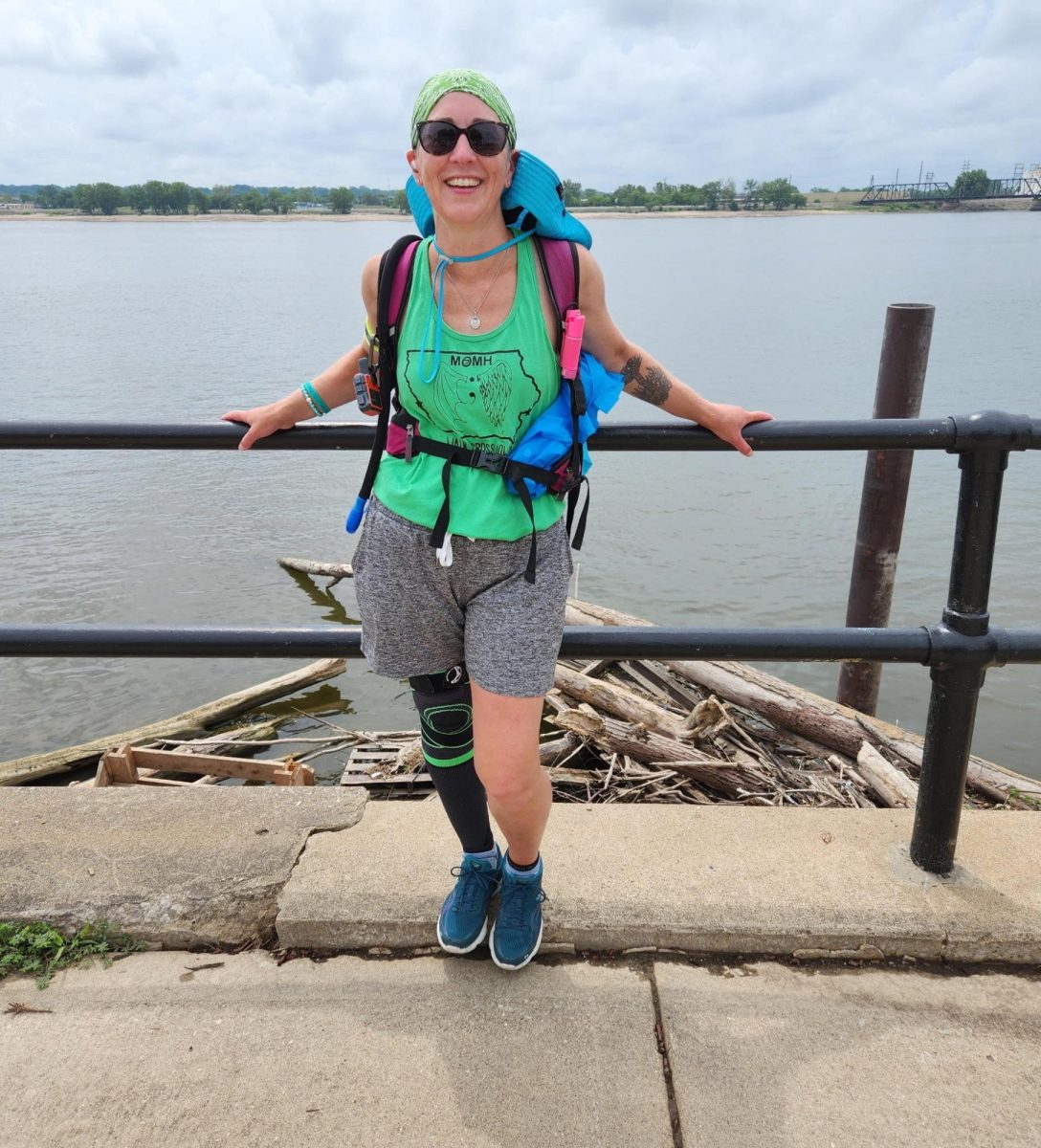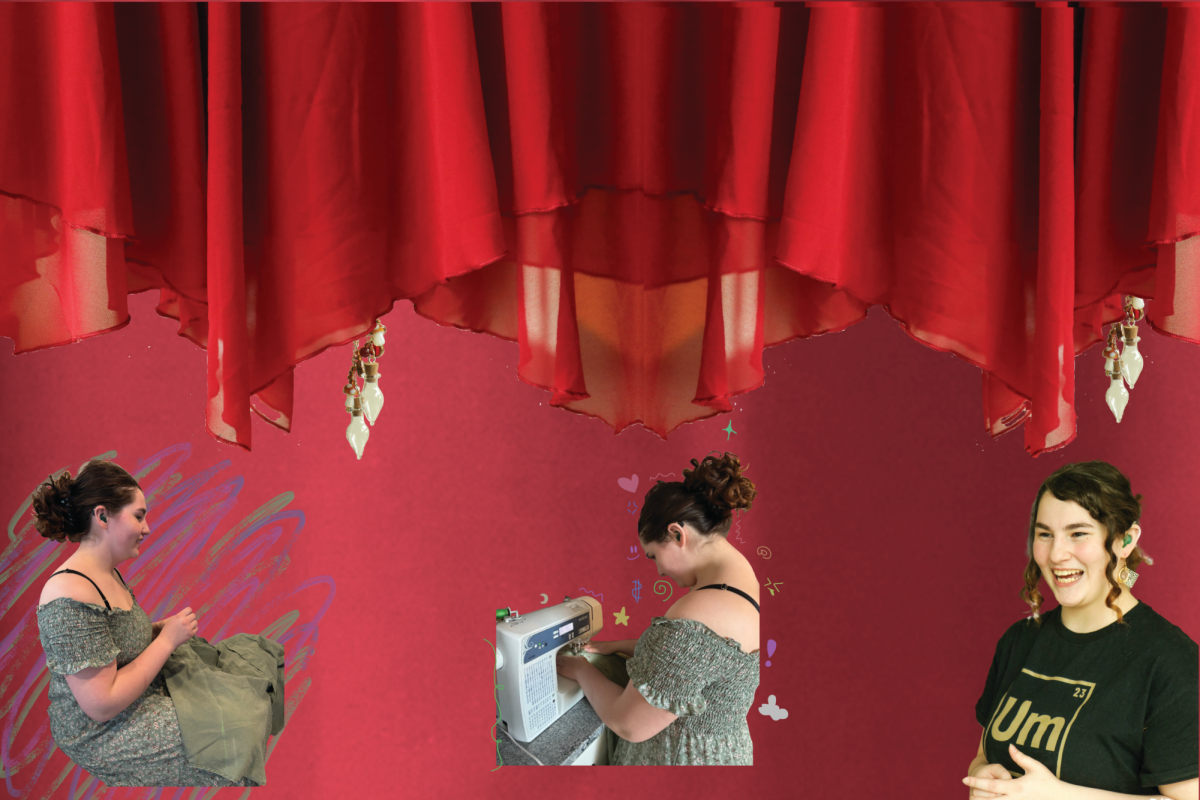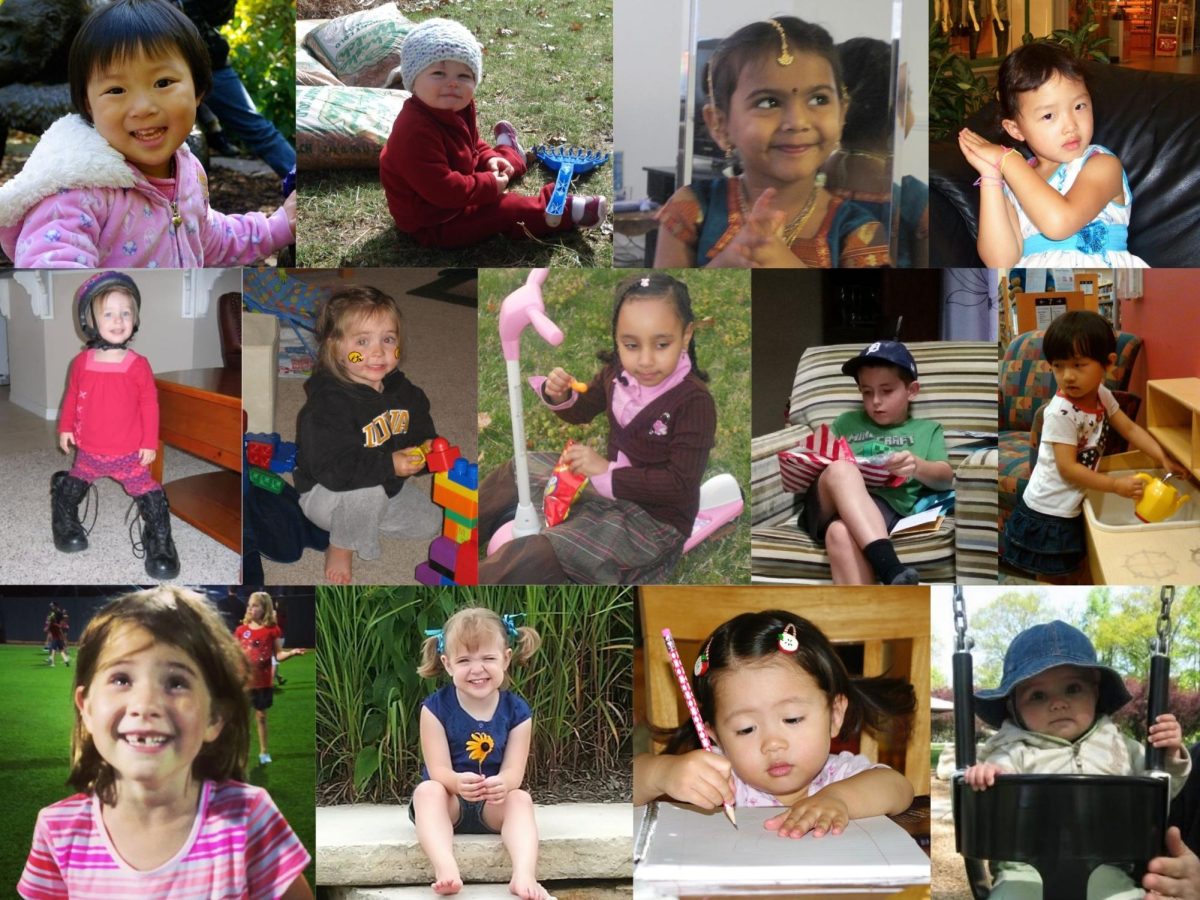From the kitchens to the classroom: Steven Caulk’s journey to West

When walking into room 230, the first thing that catches the eye is the smattering of posters across the wall. Faces such as Rosie the Riveter and Rosa Parks are visible among political slogans in bright colors from across the decades. This classroom belongs to social studies teacher Steven Caulk, a new addition to West High’s faculty.
Caulk grew up in Burbank, Calif. When he was in high school, he moved to the Hollywood area. As an adolescent, he loved surfing and snowboarding. “Redlands was basically an hour from the beach and an hour from the mountains, and on some days in the spring, you could do both,” Caulk said.
California wasn’t all good, though. Caulk wasn’t a traditional student and didn’t entirely fit the state’s school application requirements, making applying to schools in California very complicated.
Caulk decided he didn’t want to go to college in California and ended up attending Cornell College in Mount Vernon, Iowa. He was drawn to the school because they have students take only one course at a time, just for a shorter period. According to Caulk, they were one of two schools that did this at the time.
Caulk wanted to study philosophy in college and liked Cornell’s philosophy program. At the time, he was considering pursuing a PhD in the field. After graduating, he realized he didn’t want to pursue a philosophy PhD and took time to figure out what he wanted to do. He ended up working at a new restaurant in the area.
“There was a restaurant opening in Mount Vernon, of a guy that had moved there because his girlfriend at the time, … moved to take a job in the English department at Cornell. He was a chef on the East Coast at a very prestigious restaurant. So he moved to Iowa and was, to put it diplomatically, very unhappy with what he found food-wise. So he started his own restaurant in the tiny, little town of Mount Vernon,” Caulk said.
His interest in cooking also started around that time because he had to feed himself for the first time in his life.
“My mother had always been a wonderful cook growing up, but I never, you know, it just always escaped my attention that I was taking this for granted. But I think because of that, my interest grew, and I started calling her initially, like, ‘how did you make this? How did you make that?’ And I learned about this guy in town that was just now opening this restaurant, and so I just showed up at his door and started cooking and learning from him,” he said.
Caulk worked for that restaurant for about two years before deciding to move to New York City with his girlfriend, now his wife.
There wasn’t much preparation for the move. Caulk spent a weekend trying to secure an apartment before moving and lucked out, finding a 225-square-foot rent-stabilized apartment he lived in for the next ten years.
For chefs in New York City, getting hired is different than one might imagine. Often, they have to go through a stage where they work for free, showing off their skills and hopefully securing a job after a while.
“One of my jobs … I worked at for about four years. I had to stage there every single Monday after working at a different restaurant for probably close to six months, just working for free,” Caulk said.
That job was at Blue Hill, a New American-style restaurant, where the staff employed French cooking techniques with locally sourced ingredients. He worked there for four years, eventually working his way up to sous chef. While he was there, the restaurant went from having two New York Times stars (very good) to three (excellent).
When he wasn’t working, Caulk liked spending time in Central Park, only four blocks away from his apartment. For his job, he would also stop by the farmers market outside of Manhattan, only blocks away from Blue Hill.
”It was this massive farmer’s market, and we would decide what the tasting menu was going to be that night and the rest of the weekend based on what we could find at the farmers market,” Caulk said.
Although he loved cooking, it wasn’t something he saw himself doing for the rest of his life, and he decided to pursue a teaching career. “I’d always had teaching as an interest, but I wanted to do cooking first because it’s tough to do when you’re older.”
He was also thinking about starting a family, something he couldn’t do as a professional chef in the city. “I said I worked for a time at a four-star restaurant. I had to get there at noon on the day that I worked, and I wouldn’t get home until 2 a.m. the next day, and that was just the way it was. At the restaurant, Blue Hill, that I mentioned that I loved, I would get there at noon, and I probably could have gotten home a little bit after midnight, but I would often stay after to talk with the head chef and write down recipes that we had done and stuff like that. So, I still didn’t get home until one or 1:30, so how do you have a family?” Caulk said.
After moving back to Iowa, Caulk attended the University of Iowa to get his teaching certification. While attending school, he ended up working for the same restaurant he worked for in college.
When he got his teaching certification, he lived in Iowa City but started teaching at Washington High School in Washington, Iowa, about 40 minutes away. He taught United States history there for 13 years.
When a spot opened up at West years later, he decided to apply. “West has a wonderful reputation, right? And for 13 years, I had been commuting 43 minutes each way to get to Washington High School. And so, you know, there was an opening here, and I decided it was time to be closer to home and closer to family,” Caulk said.
Switching to West was an adjustment. The classes at Washington were 85 minutes long for nine-week terms, quite the contrast to West High’s 48-minute and 12- to 13-week trimesters. Even though he is teaching the same topic, American Studies, the way the classes are structured are a little different too.
“At Washington High School, [American Studies] is broken down differently. It is four separate courses. So sophomores take what’s called US History A and B, and that approximately overlaps with tri one and two here for American Studies. And then juniors and seniors take either what’s called Modern US History One or Modern US History Two, which is post World War Two.”
All the years as a chef gave him some experience that transferred to the teaching world.
”The professional cooking world, especially in New York, is absolute chaos, especially at Blue Hill, because the owner, would come in with some product, a baby lamb [for example], slung over his shoulder, and say, we’re going to use this tonight, and suddenly everybody would have to shift gears. And, we’re breaking down this baby lamb and trying to get it prepped and all this stuff, and we open in an hour and a half. So, there was a lot of stress, and there was a lot of chaos. And, sometimes teaching can feel like that as well.”
Outside of teaching and cooking, Caulk also likes to travel. His favorite trip was when he backpacked through France with his wife, partially for the food. “To this day, my wife and I talk about this sandwich that they have there with fresh baked bread,” Caulk said.
Caulk’s journey is anything but typical. From the professional kitchens of New York to teaching in Iowa City, his journey shows that dreams can change and everything will work out in the end.
Your donation will support the student journalists of West High School. Your contribution will allow us to purchase Scholarship Yearbooks, newsroom equipment and cover our annual website hosting costs.
-
 FeatureWSS 2025 People of the Year
FeatureWSS 2025 People of the Year -
 FeatureGone digital: the return of digital cameras
FeatureGone digital: the return of digital cameras -
 FeatureMiles for mental health
FeatureMiles for mental health -
 FeatureService and sacrifice
FeatureService and sacrifice -
 FeatureStitching sustainably
FeatureStitching sustainably -
 FeatureSenior futures
FeatureSenior futures -
 FeatureBrad Stiles: championship caliber coaching
FeatureBrad Stiles: championship caliber coaching -
 FeatureBack in time
FeatureBack in time -
 FeatureDriven, dangerous and distracted
FeatureDriven, dangerous and distracted -
 FeatureClass of 2025 senior columns
FeatureClass of 2025 senior columns




